AI Revolution 2025: How Machine Learning is Transforming Every Industry
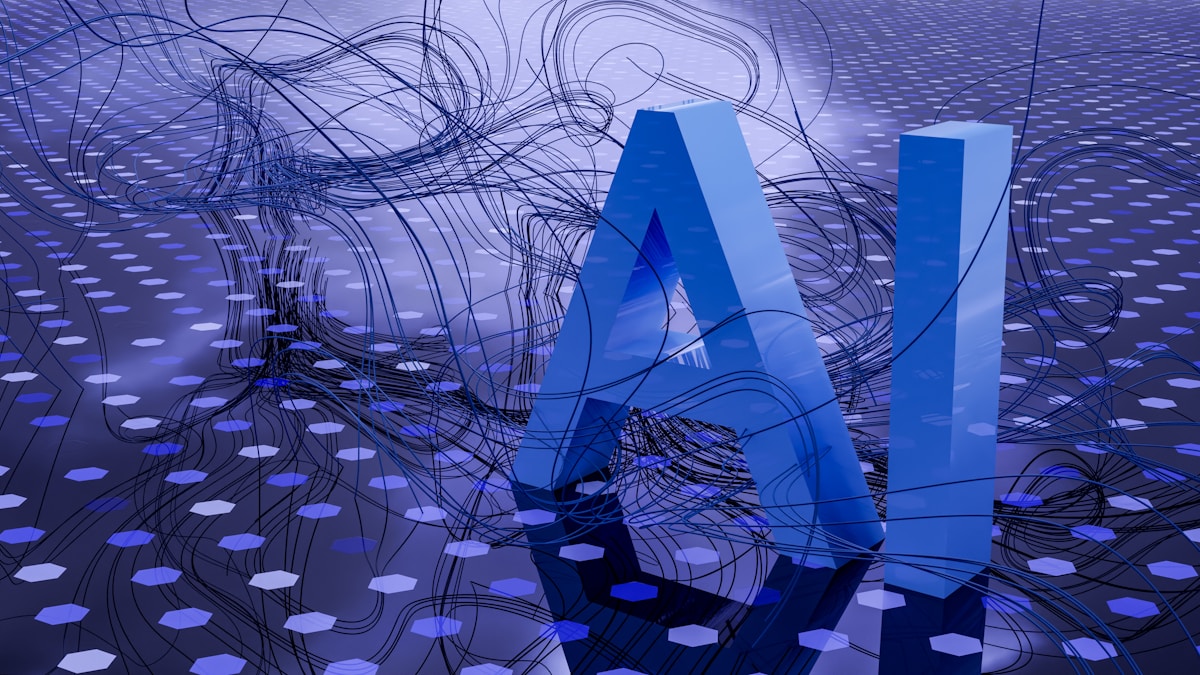
Artificial Intelligence has moved beyond the realm of science fiction to become an integral part of our daily lives. From healthcare diagnostics to financial trading, from creative arts to autonomous vehicles, AI is reshaping industries at an unprecedented pace. This comprehensive analysis explores the current state of AI technology, its transformative impact across sectors, and what the future holds for this revolutionary technology.
The Current State of AI Technology
In 2025, artificial intelligence has reached a level of sophistication that seemed impossible just a decade ago. Large Language Models (LLMs) have evolved to understand context with remarkable nuance, while computer vision systems can now identify and analyze visual information with superhuman accuracy. The convergence of these technologies with edge computing and 5G networks has created an ecosystem where AI can operate in real-time, at scale, anywhere in the world.
The democratization of AI tools has been perhaps the most significant development. No longer confined to tech giants and research institutions, AI capabilities are now accessible to small businesses and individual developers through cloud-based APIs and open-source frameworks. This accessibility has sparked an innovation explosion, with new applications emerging daily.
Recent breakthroughs in neural architecture search and automated machine learning (AutoML) have simplified the process of creating custom AI models. Companies can now deploy sophisticated AI solutions without extensive expertise in data science, dramatically reducing the barrier to entry for AI adoption.
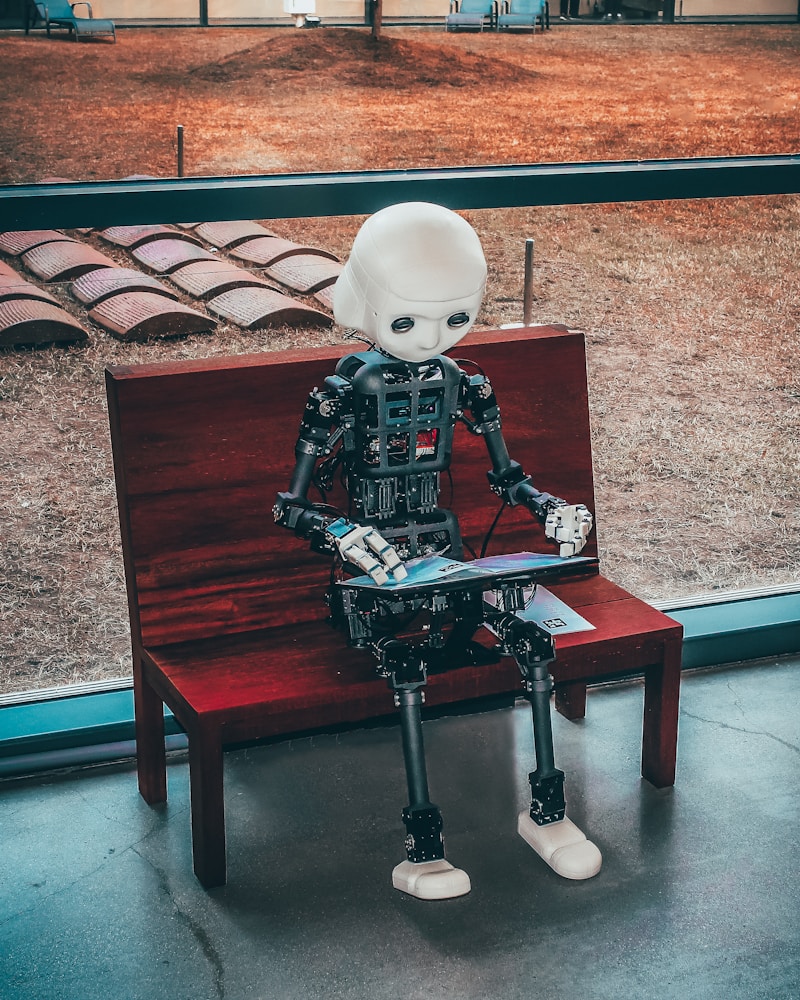
Healthcare: AI Saving Lives at Scale
The healthcare industry has witnessed perhaps the most dramatic transformation through AI adoption. Machine learning algorithms now assist doctors in diagnosing diseases with unprecedented accuracy, often catching conditions years before traditional methods would have detected them. AI-powered drug discovery has reduced the time from concept to clinical trials from decades to mere years.
"AI has given us the ability to personalize medicine at a scale we never imagined possible. We're not just treating diseases anymore; we're preventing them."
Dr. Sarah Mitchell, Chief of AI Medicine at Johns Hopkins
Predictive analytics powered by AI can now forecast patient deterioration hours before critical events occur, allowing medical teams to intervene proactively. In radiology, AI systems analyze millions of images, detecting anomalies that human eyes might miss. The technology has become so reliable that many hospitals now use AI as a standard second opinion for all diagnostic imaging.
Finance: Algorithmic Intelligence Reshaping Markets
The financial sector has embraced AI with remarkable enthusiasm, deploying it across everything from fraud detection to algorithmic trading. Modern AI systems can analyze vast amounts of market data in milliseconds, identifying patterns and opportunities that would be impossible for human traders to spot. This has led to more efficient markets, but also raised questions about market stability and fairness.
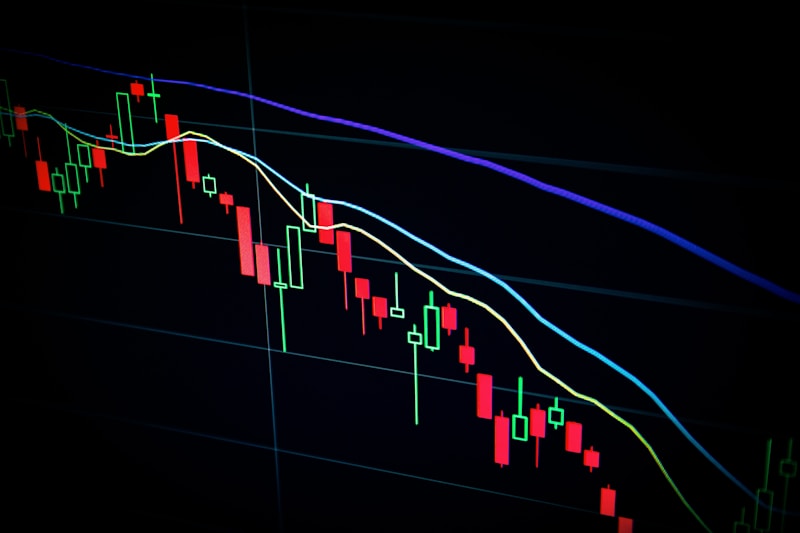
Risk assessment has been revolutionized by machine learning models that can evaluate creditworthiness using thousands of data points, going far beyond traditional credit scores. This has expanded access to financial services for millions of previously underserved individuals, while simultaneously reducing default rates for lenders.
Robo-advisors powered by AI now manage over $7 trillion in assets globally, providing personalized investment advice at a fraction of the cost of human advisors. These systems continuously learn from market conditions and individual investor behavior, optimizing portfolios in real-time to maximize returns while managing risk.
Manufacturing: The Smart Factory Revolution
Manufacturing has undergone a complete transformation with the integration of AI into production processes. Smart factories equipped with AI-powered systems can predict equipment failures before they occur, optimize production schedules in real-time, and adapt to changing demand instantaneously. Quality control has reached new heights with computer vision systems that can detect defects invisible to the human eye.
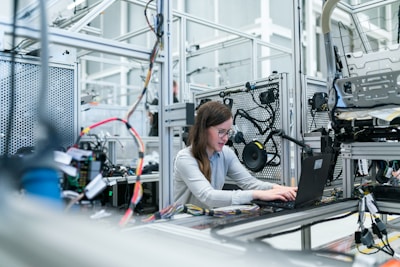

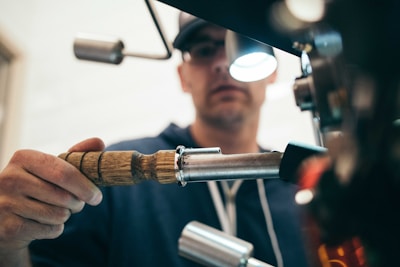
Collaborative robots (cobots) equipped with AI work alongside human workers, learning from their movements and adapting to optimize workflow. These systems have increased productivity by an average of 40% while reducing workplace injuries by 85%. The flexibility of AI-driven manufacturing allows for mass customization, where products can be tailored to individual customer specifications without sacrificing efficiency.
Transportation: Autonomous Future on the Horizon
The transportation industry stands on the brink of its biggest revolution since the invention of the automobile. Autonomous vehicles, powered by sophisticated AI systems, are no longer a distant dream but a rapidly approaching reality. Major cities around the world now have fleets of self-driving taxis operating in controlled environments, with full deployment expected by 2027.
AI has also transformed logistics and supply chain management. Predictive algorithms optimize delivery routes in real-time, considering traffic patterns, weather conditions, and package priorities. Drone delivery systems, guided by AI, are handling last-mile delivery in urban areas, reducing delivery times from days to hours.
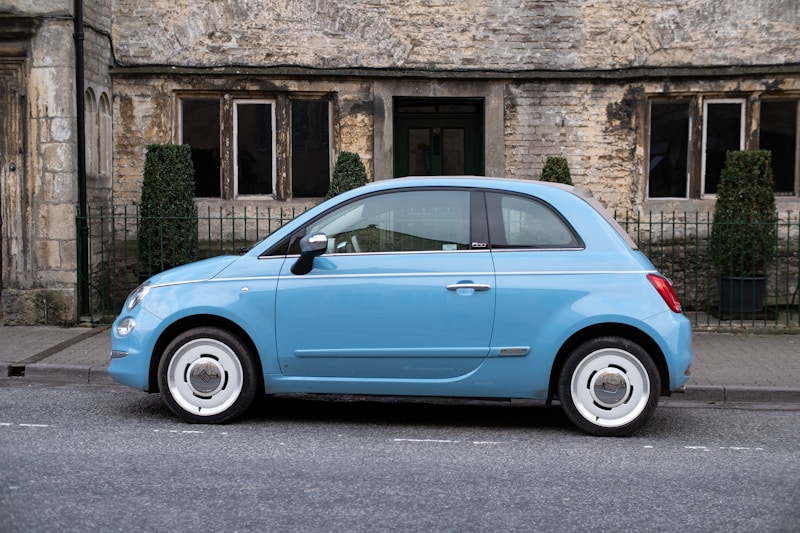
Creative Industries: AI as a Collaborative Partner
Perhaps nowhere has AI's impact been more surprising than in creative fields. AI systems now compose music, write poetry, create visual art, and even design architecture. Rather than replacing human creativity, these tools have become powerful collaborators, augmenting human imagination with computational possibilities.
In film and gaming, AI generates realistic environments, characters, and even entire storylines. Marketing agencies use AI to create personalized content at scale, tailoring messages to individual consumers based on their preferences and behavior. The fashion industry employs AI to predict trends, design new styles, and optimize inventory based on real-time demand signals.
"AI doesn't replace creativity; it amplifies it. It's like having a creative partner with infinite patience and boundless knowledge."
Marina Rodriguez, Creative Director at IDEO
Challenges and Ethical Considerations
Despite its tremendous benefits, the AI revolution brings significant challenges. Privacy concerns have intensified as AI systems require vast amounts of data to function effectively. The potential for bias in AI algorithms has led to calls for greater transparency and accountability in AI development. Questions about job displacement continue to spark debate about the future of work in an AI-dominated economy.
Regulatory frameworks struggle to keep pace with technological advancement, creating uncertainty for businesses and consumers alike. The concentration of AI capabilities in a few large tech companies raises concerns about market power and innovation. Additionally, the environmental impact of training large AI models has become a growing concern, with some models consuming as much energy as small cities.
Key AI Challenges
- Data privacy and security
- Algorithmic bias and fairness
- Job market disruption
- Regulatory compliance
- Environmental sustainability
- AI safety and control
The Road Ahead: What's Next for AI?
Looking forward, the next frontier in AI development includes artificial general intelligence (AGI), quantum-enhanced machine learning, and brain-computer interfaces. Researchers are working on AI systems that can truly understand and reason about the world in the way humans do, moving beyond narrow task-specific applications to more general problem-solving capabilities.
The integration of AI with other emerging technologies like quantum computing, biotechnology, and nanotechnology promises to unlock possibilities we can barely imagine today. From reversing aging to colonizing other planets, AI will be the enabling technology that makes the impossible possible.
As we stand at this technological inflection point, one thing is certain: AI will continue to reshape our world in profound ways. The question is not whether AI will transform society, but how we can ensure that transformation benefits all of humanity. The choices we make today about AI development, deployment, and governance will determine the shape of our collective future.
Stay Updated on AI Developments
Subscribe to our newsletter for weekly insights on the latest AI breakthroughs and their impact on society.